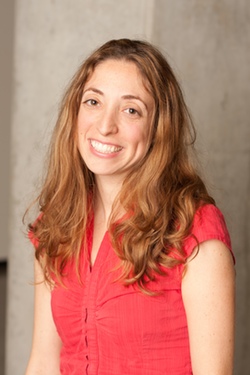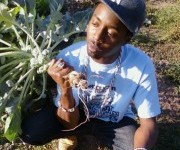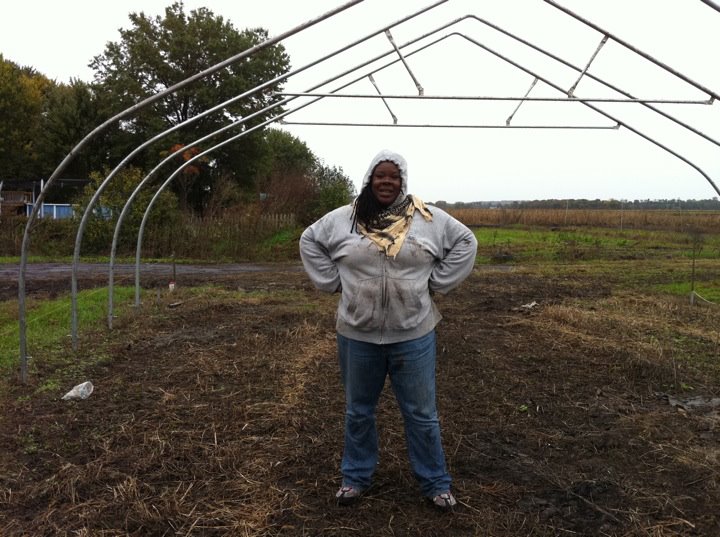 Grist is proud to present the Change Gang — profiles of people who are leading change on the ground toward a more sustainable society and a greener planet. Some we’ve written about before; some are new to our pages. Some you’ll have heard of; most you probably won’t. Know someone we should add to the Change Gang? Tell us why.
Grist is proud to present the Change Gang — profiles of people who are leading change on the ground toward a more sustainable society and a greener planet. Some we’ve written about before; some are new to our pages. Some you’ll have heard of; most you probably won’t. Know someone we should add to the Change Gang? Tell us why.
Call it the bright side of globalization: progressive solutions midwifed by transnational interconnections. From her office in Berkeley, Calif., Andree Sosler, executive director of the Darfur Stoves Project, coordinates the distribution of cheap, clean, super fuel-efficient cooking stoves to women in the Darfur region of Sudan. Designed by Berkeley scientists, partially manufactured in Mumbai, India, and assembled in Sudan, the stoves vastly reduce the amount of time and money Sudanese women have to spend obtaining firewood and cooking food.
Dubbed “the five minute stove” by a group of Darfuri women Sosler helped train to market the device, the stoves are carefully calibrated to fit local environmental conditions and traditional cooking methods. As part of the research and development process, a team led by Ashok Gadgil, the director of the Environmental Energy Technologies Division at the Lawrence Berkeley National Laboratory, made sure that users of the stove would be able to successfully cook traditional Darfuri meals such as assida, a sticky dough topped with fried onion, meats, and spices.
Sosler remembers showing some women in Darfur who had used the stoves a short video depicting the research process.
“These women were just astounded to see that there were women across the world testing these stoves, for us,” says Sosler. “One of the women almost started crying when she saw these pictures of Berkeley college students making assida. At that moment both the woman I was talking to and I felt the same feeling: This is amazing. We are bridging these huge gaps, taking world-class science down to one of the most unfortunate situations in the world.”
The Darfur Stoves Project is the first initiative of the Technology Innovation for Sustainable Societies, a nonprofit founded by Gadgil linking research institutions, nonprofits, and local distributors to promote progressive technological solutions to entrenched poverty and degraded environments. It’s a job that Sosler has been pointed directly at ever since she was a junior at Brown University, when she spent a semester in Cameroon.
After Cameroon, says Sosler, “I knew I wanted to have a career in economic development, most likely focused on Africa.” In the decade that followed she worked for Trickle Up, a microfinance organization, on projects in Benin, Mali, Niger, Burkina Faso, Ethiopia, and Uganda, obtained an MBA from Wharton, and did a stint as a consultant to the government of Rwanda, focusing on the goal of improving tea exports.
But her experience working for Trickle Up and seeing the way many nonprofits operated in Africa left her feeling a big piece was missing from the aid game.
“There just wasn’t much core operating support for the local organizations,” says Sosler. “I met so many amazing grass roots organizations, and local activists, and just really motivated people who were sacrificing so much to help their communities, but I felt really frustrated with the lack of tools I had at the time to help them build their own capacity to solve their problems.”
At the Darfur Stoves Project, Sosler helps train the trainers who teach Darfuri women how to use the stoves, builds consensus between the scientists at Berkeley and the big nonprofits on the ground in Darfur, and hammers out the details of the supply chain that translates ideas in California to cleaner, faster-working, fuel-saving stoves in Darfur. The long-range plan is to translate the lessons learned in Darfur to deployment of other technologies elsewhere.
“Our role is to be project managers,” says Sosler, “and help make sure that the research and development that is done is demand-driven based on what is needed by people in developing countries, and to foster the relationships between researchers and the local people, and to help create sustainable mechanisms by which the technologies can be disseminated in an ongoing way without indefinite aid.”
If there’s a touch of Silicon Valley venture-capital pragmatism leaking through Sosler’s mindset, that’s not necessarily an accident. One of the structural problems that has plagued aid projects in the developing world in the past was an unwillingness to let donors know when projects weren’t working, for fear of losing funding. But that’s changing.
“I see a lot of Silicon Valley funding coming into this field and I think that because of that influence, people are really much more open now to saying we’re going to try three different things and we’ll do the one that works. I think there is an opening up of dialogue and transparency around the field, and an understanding that there isn’t one magic bullet solution. A lot of small solutions are gaining ground, and honestly that is probably the way that we are going to make large-scale change in the future.”



